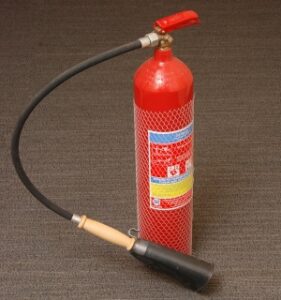TOP 10 HOME FIRE PREVENTION TIPS
- Test smoke alarms. You’ll find this on almost every one of our handy household maintenance check lists. Batteries in smoke detectors should be replaced once a year and each unit should be tested often.
- Check your fire extinguisher expiration date. Not everyone realizes that these actually do expire. You don’t want to find this out when you actually need it. Add a helpful reminder and program the expiration date into your smartphone or online calendar.
- Clean your dryer vents! You should clean the entire dryer and ventilation system at least once a year. The flammability of lint is highly underestimated. Need some guidance? YouTube has a few great video tutorials for “dryer cleaning”, or contact the manufacturer of your machine. Make sure to not only clean the screen, but clear debris from the back of the dryer, and check that the exterior vent is also clear.
- INSPECT. This is another repetitive goodie. As with any prevention, regular inspection is key to detecting a problem before it becomes a disaster. Check all exposed wires, interior and exterior, for any loose areas or damage. Check for soot marks or damage to your electrical panel. Act immediately if you find a strong odor around your gas connections. Check any pilot lights and don’t forget about places like your attic where animals could chew wires. Make sure circuits aren’t overloaded and that all areas around major appliances are clear of dust and debris. The coils under that heater aren’t going to clean themselves.
- Clean your range hood, stove, and oven. Buildup of grease and cause a nasty kitchen fire. If you do experience a grease fire, remember not to use water! You must either extinguish it or smolder it.
- Maintain your heating sources. No matter the heat source, be it a furnace, fireplace, or space heater; be sure to have it properly maintained. Furnaces and duct work should be cleaned and the filter changed. Space heaters should be properly used within safe distances of flammable items, and their chords should be in perfect condition. Fireplaces should be cleaned and chimneys swept.Check for cracks and other hazards around the hearth. Be careful what you burn in there! Some woods pop excessively, like cedar.
- When cooking, stick around. Unattended cooking is of the most common causes of house fires. If you are going to leave the room, turn off your burners. The same goes for outdoor grilling.
- No smoking in bed! Or laying down anywhere for that matter. If you must still smoke, stay standing and prevent yourself from falling asleep.
- Install additional protection such as a sprinkler system and a lightning protection system. Sprinkler systems are great extra protection while you are there and peace of mind when you are not. These systems combined with smoke alarms will increase the value of your home and give you a greater chance of surviving a fire. A lightning strike on a property can ruin the entire electrical system and blow every connected electronic device in it. Lightning protection systems provides a safe route for the electrical current to follow, rerouting it from the sensitive routes within your home. You could take it a step further and add additional surge protection to prevent scenarios such as a small surge in the power lines from starting a fire in your electrical panel. If you are experiencing a storm capable of producing lightning, it is best to unplug all outlets, especially large electronics such as computers, televisions, and dyers.
- Consult a professional if you find that something is flickering frequently or if certain fuses blow often. This could be signs that there is a deeper hidden problem you’ll want to fix right away.
Please consider all of these tips strongly for the safety of your property. For the day you’ll spend checking them off, you’ll save yourself thousands of dollars and years of worry. Experiencing so many things that we can’t prevent such as major storm systems, tornadoes, and floods, gives us all the more reason to prevent the things we can.

